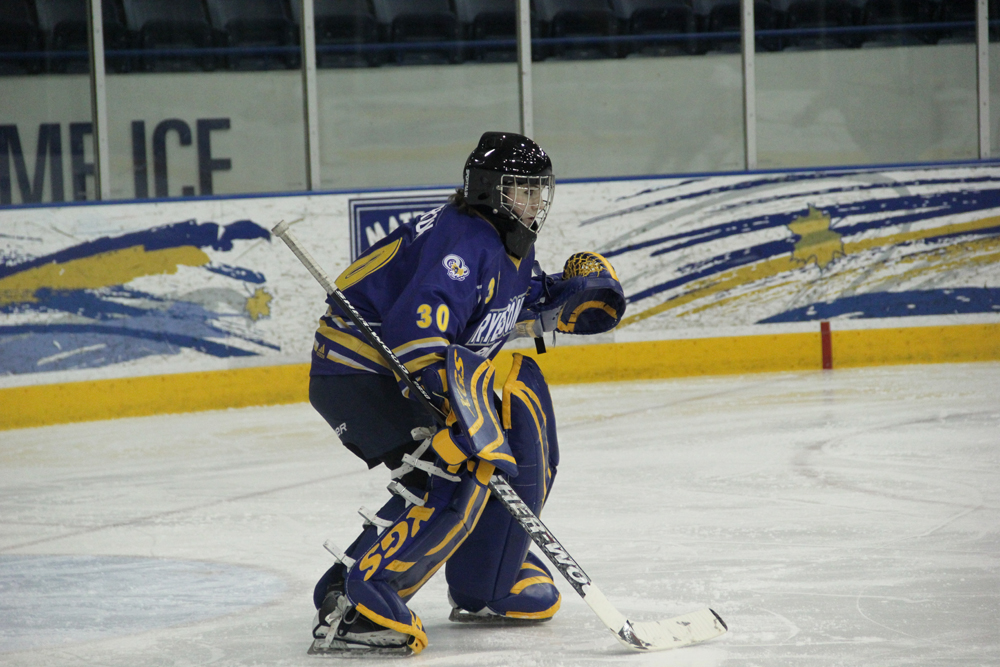By Harlan Nemerofsky
According to the Canadian Hard of Hearing Association, more than three million Canadians are affected by hearing loss. But most of them aren’t obligated to get in the way of slap shots. Dana Carson, a goaltender for the women’s hockey team, was born with mild-to-moderate hearing deficiency.
“I might hear part of the sentence, but not the full sentence,” says Carson.
“Or I think I understood it, but [it] doesn’t really make sense [in relation to] what they’re talking about, so I might just ask them again to explain.”
Carson wears hearing aids regularly, but chooses not to wear them while playing because they’re battery operated and she doesn’t want them to get wet. Instead, she wears them only in certain situations, like in school, watching TV, and interacting with others.
“I’ve never worn my hearing aids while in net, so I wouldn’t know how to hear the difference, really,” she says.
Amita Bhise, an audiologist at the College of Audiologists and Speech Language Pathologists of Ontario (CASLPO), says that simply having people speak louder or turning up the volume won’t always work for someone with mild-to-moderate hearing loss, because volume isn’t always the issue. Rather, it’s difficulties with sound and word discrimination – the ability to differentiate among units of sound in a language.
Carson struggles to hear consonants – which are responsible for 95 percent of the message in speech- especially soft-sounding ones like “h”, “sh”, and “s.” Rams’ head coach Lisa Haley says that while you’d never know Carson has a hearing impediment simply by watching her play, she makes a special point of looking directly at her when she’s speaking to her.
“You’d have to look closely to notice the fact that she continues to follow the play after the whistle blows,” says Haley. “It might take her a [bit] to recognize the play has stopped, but that’s a good thing in my opinion.” She also speaks slowly and clearly, so that Carson can read her lips – something that people with hearing losses do in order to make up for what they can’t hear.
“If there’s something that needs to be said, people make sure I hear and make sure I know what’s going on,” says Carson.
Theresa Brassard, an audiologist at the Hearing Health Care Consultant Group, says that in order to play goal, Carson needs to have highly developed visual skills – a sentiment fellow goalie Brianna Tremblay agrees with.
“Often times I’ll look down or I’ll try to contain myself. But for Dana, she’s consistently watching every movement that the referee is making, every movement that the players are making, and every movement on the ice,” says Tremblay. “She doesn’t very often put her head down and concentrate [on] herself. She’s always watching everything.”












Leave a Reply